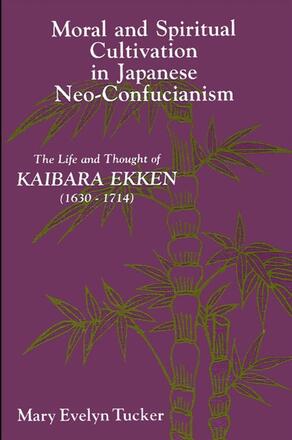
Moral and Spiritual Cultivation in Japanese Neo-Confucianism
The Life and Thought of Kaibara Ekken (1630-1714)
Alternative formats available from:
Description
Kaibara Ekken (1630—1714) was the focal Neo-Confucian thinker of the early Tokagawa period. He established the importance of Neo-Confucianism in Japan at a time when Buddhism had long been the dominant religious philosophy. This is the first book-length presentation of his thought. It contains a lengthy introduction to Ekken's life, time, and thought, and a careful translation into readable English of Ekken's book, Precepts for Daily Life in Japan (Yamanto Zokkun).
Mary Evelyn Tucker is Assistant Professor of Religion at Bucknell University.